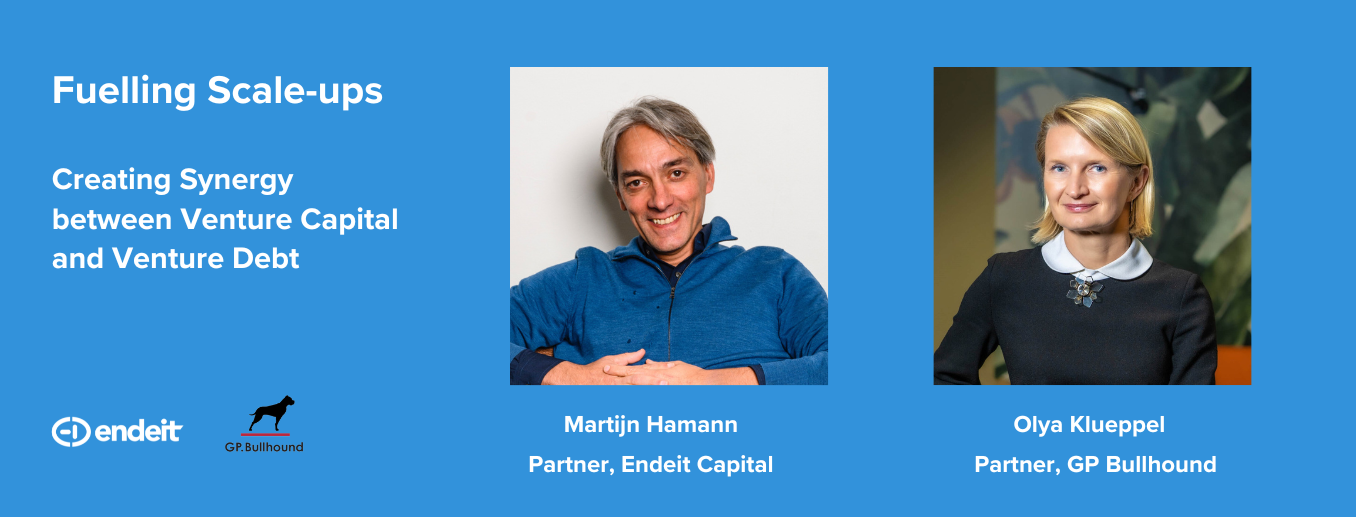A study by Lefebvre Sarrut (2023) shows that 40% of companies surveyed are not familiar with Environmental, Social, and Governance (ESG) criteria, 43% lack a designated reference for ESG criteria, and 45% did not take any steps to prepare for CSRD compliance.
Endeit’s perspective: key insights and investment criteria in carbon accounting scale-ups

Endeit’s interest in climate tech
While Endeit is a generalist investor, the demand for climate technology has piqued our interest. And we’re not alone in this: according to PwC’s State of Climate Tech 2023 report, climate tech investments have increased relative to all start-up investments. In a changing investment landscape marked by the end of a bull market, private climate funds, particularly in climate tech, appear resilient. Historical data shows the consistent outperformance of PE and VC in climate tech. In addition, climate tech innovations play a critical role in addressing climate change, which we believe is the most pressing global challenge of our time. Consequently, Endeit is actively exploring opportunities in the climate tech sector.
Topics we have been looking into vary from energy transition to regenerative agriculture. Today, we will delve into the topic of carbon accounting and management. In this highly competitive market, there’s a prevailing sentiment that winners may have already emerged. Despite the common perception of a red ocean, we continue to believe that untapped opportunities remain. In this blog, we share our insights into what we believe is the untapped potential within the carbon accounting and management market.
Overview
1. Understanding carbon accounting and management
2. Investment potential and transformational policies
3. Endeit’s criteria for carbon accounting scale-ups
4. Conclusion
Understanding carbon accounting and management
Carbon accounting is a method of calculating the greenhouse gas emissions produced by an organization. It’s much like financial accounting, but instead of measuring economic impact, it measures climate impact. This process, also known as greenhouse gas accounting, helps companies to estimate their carbon footprint. The process consists of five stages:
1. Data collection & processing;
2. Emissions calculation;
3. Analysis;
4. Reporting;
5. Goal setting.
Carbon accounting is an ongoing process that helps companies reduce their carbon footprint and adapt to changing environmental standards and reporting requirements. This reporting is mandatory for some companies, but for all, it’s a step towards greater environmental responsibility.

Graphic: carbon accounting explained by Normative.
Investment potential and transformational policies
As governments worldwide intensify their efforts to combat climate change, new regulations such as the Corporate Sustainability Reporting Directive (CSRD) are set to reshape the corporate landscape by requiring comprehensive sustainability reporting. The CSRD’s emphasis on detailed carbon accounting drives companies to reassess their sustainability strategies, creating a significant market for solutions that facilitate accurate and efficient carbon reporting. This Directive will be rolled out in phases between 2024 and 2028.
By 2024, EU companies with more than 500 employees or a turnover of more than €40m will be required to report on their environmental, social, and governance impact. In many cases, however, the CSRD extends beyond EU companies. The Directive will continue to expand to include companies with more than 250 employees in 2025, listed SMEs in 2026, and subsidiaries of non-EU groups in 2028. In total, this will amount to circa 49k companies. As larger companies try to understand the emissions resulting from their supply chain, they encourage their suppliers to track and manage their emissions as well, creating a snowball effect on adoption.
However, many European companies are unprepared for the European Union’s upcoming CSRD. A study by Lefebvre Sarrut (2023) shows that 40% of companies surveyed are not familiar with Environmental, Social, and Governance (ESG) criteria, 43% lack a designated reference for ESG criteria, and 45% did not take any steps to prepare for CSRD compliance. Notably, progress is observed in the industrial sector, such as automotive and manufacturing. The study highlights the need for companies to understand and address ESG criteria, turning potential constraints into development opportunities in the face of increasing global sustainability regulation.
In addition to companies subject to the CSRD, many companies are committing to reach net zero. Around half of European companies report having 1.5 °C climate transition plans – but less than 5% show advanced progress in developing such a plan. Understanding where carbon emissions come from and how they can be reduced is essential to achieving net zero.
Market trends in the carbon accounting and management market over the past few years show an evolving sector that has attracted significant attention and investment. According to an analysis by data provider Net Zero Insights, European carbon accounting startups raised $860m in 2022. However, 2023 has seen a notable shift in the sector’s investment landscape, with funding dropping to $253m. Despite the drop in funding, the market remains popular and increasingly competitive. This raises the critical question of how sector companies differentiate themselves.
Endeit’s criteria for carbon accounting scale-ups
At Endeit, our assessment of companies in the rapidly evolving carbon accounting and management market is primarily based on the following three criteria, which may differ from those used by early-stage investors due to the industry’s dynamic nature.
Digitized and strong in data collection & processing
Many companies struggle with data collection and input and need help. The current generation of carbon accounting software providers has made significant progress in automating the calculation of carbon footprints from activity data. Nevertheless, there is potential for increased automation, particularly in the phases of activity mapping, data collection, and processing, where the most significant complexity lies (refer to the table below). We, therefore, see significant potential for companies that are able to optimize and automate the more complex steps in the carbon accounting process. It is important to note that while digitized products can significantly improve data collection and processing processes, there may still be cases where (some) consultancy proves crucial. A go-to-market strategy that includes partnerships with consultancy firms could be key.

Graphic: Carbon Accounting time spent and complexity level – by GP Bullhound ten trends to drive technology in 2024.
Decarbonization as a core value
We see significant investment potential in companies that prioritize decarbonization and successfully cross-sell these products to their customers. In addition to providing customers with insight into their carbon footprint, these companies offer a comprehensive suite of decarbonization solutions. This approach not only promotes environmental responsibility, but also creates a strong client retention strategy.
Vertical focus
We see a significant advantage for companies that narrow their focus to a specific vertical. We believe that customizing product features to meet the particular needs and requirements of that specific vertical improves its strategic positioning for success in a highly competitive market. While we are open to various industry specializations, we see significant potential in high–pollution industries such as manufacturing. Not only do these industries offer tremendous opportunities to reduce carbon emissions, but they also align with growing environmental concerns. Additionally, consumer-centric industries like retail are also attractive, driven by the increasing consumer demand for transparency in ESG data.
Conclusion
With a striking number of companies still unprepared for regulatory changes in carbon reporting, there is a significant opportunity for development and growth in this sector. In addition, increasing corporate commitment to reach net-zero emissions drives the demand for sophisticated carbon accounting and management tools. While some market players such as Watershed, Normative, and Sweep have already secured significant funding, Endeit believes that this is not a winner-takes-all market and opportunities remain, particularly for later-stage investors.
At Endeit, we have identified three key investment criteria. First of all, we focus on companies that excel in a specific vertical within the carbon management domain. Second, we prefer solutions that offer a full suite of services, not just carbon accounting but also tools critical to a company’s decarbonization process. Finally, we emphasize the importance of digitization and efficient data input capabilities, which are key challenges many companies are facing.
Are you a European entrepreneur specializing in carbon accounting and management? We’re eager to connect and explore potential collaborations. Don’t hesitate to reach out to share your insights!
Article written by Emmelie Meurs.
Sources:
- PwCs state of climate tech ’22
- 75 of companies not ready for pending ESG data assurance requirements KPMG survey
- Lefebvre Sarrut
- Around half of EU companies report having 1.5
- Climate tech investing in 2023 carbon equities top 12 market and tech trends
- Investing in climate tech during uncertain times
- Decoding carbon accounting management
- SMES in the supply chains of large companies are indirectly affected by the CSRD

